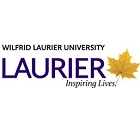- News and articles
- Find usIDP AustraliaIDP BahrainIDP BangladeshIDP CambodiaIDP CanadaIDP ChinaIDP EgyptIDP GhanaIDP Hong KongIDP IndiaIDP IndonesiaIDP IranIDP JordanIDP KenyaIDP KoreaIDP KuwaitIDP LebanonIDP MalaysiaIDP MauritiusIDP Middle EastIDP NepalIDP New ZealandIDP NigeriaIDP OmanIDP PakistanIDP PhilippinesIDP Saudi ArabiaIDP SingaporeIDP Sri LankaIDP Taiwan, ChinaIDP ThailandIDP TurkeyIDP UAEIDP VietnamIDP Corporate
- Social
- English
- Where we operate
- Courses
- Scholarships
- IELTS
- About IDP
- Student Essentials
- News and articles
- Find us
- Find us
- Find nearest IDP offices
- IDP Australia
- IDP Bahrain
- IDP Bangladesh
- IDP Cambodia
- IDP Canada
- IDP China
- IDP Egypt
- IDP Ghana
- IDP Hong Kong
- IDP India
- IDP Indonesia
- IDP Iran
- IDP Jordan
- IDP Kenya
- IDP Korea
- IDP Kuwait
- IDP Lebanon
- IDP Malaysia
- IDP Mauritius
- IDP Middle East
- IDP Nepal
- IDP New Zealand
- IDP Nigeria
- IDP Oman
- IDP Pakistan
- IDP Philippines
- IDP Saudi Arabia
- IDP Singapore
- IDP Sri Lanka
- IDP Taiwan, China
- IDP Thailand
- IDP Turkey
- IDP UAE
- IDP Vietnam
- IDP Corporate
- Social
- Language Switcher
- IDP Education /
- Colleges and Universities /
- Canada /
- Wilfrid Laurier University /
- Doctor of Philosophy in Music


Location
Canada
Qualification
Ph.D.
Fees
CAD20655
(2025)
Duration
4 Year(s)
Next intake
07 September 2025
Entry Score
6.5
IELTSCourse info
Unique not only in Canada, but also internationally, the program curriculum is based on a Doctoral Action Plan, Problem-Based Learning, Peer Learning, and various Doctoral Special Seminar Topics (DSST).
Research pursuits are limitless, but may include music and wellness, music performance and transforming communities, music therapy interventions, music and the brain, global music practices, activism in health and well-being, music and aging, and music-medicine.
The PhD in Music consists of 12 credits, comprised of a combination of Doctoral Seminar Special Topics (DSSTs), independent directed studies proposals relevant to their research topics as electives, seminars or symposia, research supervision, comprehensive exams and final dissertation writing and defense.
Because of the diversity of research topics pursued, the PhD program in Community MusicMusic Therapy does not involve a core component; in general, the student works mainly with an individual supervisor and with their peer group.
Once the project is defined, methods established, and ethics approved, the subsequent years in the program are devoted to refining the research and moving forward in data collection. Along with collaborative learning, faculty advisement, and doctoral special topics seminars, the student develops a level of expertise in the specific field of focus.
- Scholarships View all scholarships
- Internships
Entry requirements for Wilfrid Laurier University
Successful applicants must have completed a master’s program in areas such as Music, Music Education, Fine Arts, Music Therapy, or Community Music with a minimum average of A-. Applicants holding an honours undergraduate degree in in Music/Music Therapy/Community Music and a master’s degree in allied fields such as Social Work, Psychology, Pastoral Counselling, Music Education, Early Childhood Music, Pedagogy, Leisure Studies, or other related fields may be considered.
TOEFL iBT/TOEFL iBT Home Edition: minimum score of 89, with minimum skill scores of 21 in each of the skills tests (speaking, writing, reading and listening).
Paper-based TOEFL: minimum of 573.
International English Language Testing System (IELTS, IELTS Online): Academic - minimum score of 7.
Pearson Test of English Academic (PTE Academic, PTE Academic Online): minimum score of 60.
Canadian Academic English Language (CAEL, CAEL Online): minimum score of 70.
Application Deadline
The application deadline isn't available Speak to an IDP counsellor for more detailed information
Further information
If you aren't eligible for the above entry requirements, you might ant to explore pathway options at Wilfrid Laurier University. If you want to find out more, speak to our counsellors.
THE World Ranking
801st / 1250
THE World RankingWhat our students think
We’ve haven’t received any reviews for this institution yet.
Recommended for you
- THE World Ranking:401
- Ph.D.
- Toronto , Canada
- Next intake:09/2025
- CAD37281 (2025)
- THE World Ranking:41
- Ph.D.
- Vancouver , Canada
- Next intake:05/2025
- Entry Score: IELTS 6.5
- CAD9131 (2025)
- THE World Ranking:201
- Ph.D.
- London , Canada
- Next intake:09/2025
- Entry Score: IELTS 6.5
- CAD9846 (2025)
- THE World Ranking:401
- Ph.D.
- Toronto , Canada
- Next intake:09/2025
- Entry Score: IELTS 7.5
- CAD18000 (2025)
- THE World Ranking:401
- Ph.D.
- Toronto , Canada
- Next intake:09/2025
- THE World Ranking:41
- Ph.D.
- Vancouver , Canada
- Next intake:09/2025
- Entry Score: IELTS 7.0
- CAD9690 (2025)
- THE World Ranking:116
- Ph.D.
- Edmonton , Canada
- Next intake:09/2025
- Entry Score: IELTS 6.5
- CAD9406 (2025)
- THE World Ranking:41
- Ph.D.
- Vancouver , Canada
- Next intake:09/2025
- Entry Score: IELTS 6.5
- CAD9690 (2025)
Your action plan
Step 1
Shortlist your courses
Choose the best three courses you’re most likely to pursue.
Step 2
Check your eligibility
Get an instant in-principle offer for courses with the IDP FastLane tag.
Step 3
Apply through IDP Live
Fill out the form once and use it to apply to multiple courses.
How does IDP FastLane work?
With the FastLane 'Offer in Principle', you'll know in minutes if you'll be accepted!
Select an institution and course
Create your academic profile
Submit your application for an 'Offer in Principle'
Your chosen institution(s) will send you a decision in minutes!
Get ready to apply with an expert counsellor




